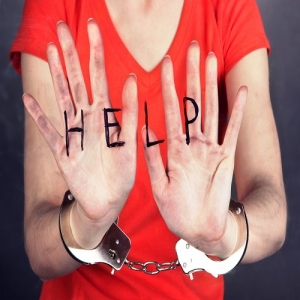Overcrowding and understaffing have been blamed for the escalating number of suicides in prisons, following the release of alarming new figures. A Government report released recently revealed that 119 inmates took their own lives in 2016 – the highest number since records began and 29 more than the previous year. The Ministry for Justice also reported a record high of 37,784 self-harm incidents and 25,049 assaults.
Drugs, Drones & Phones

Are drones like this smuggling drugs and phones in the UK’s prison’s
A report on the figures explains that an increase in violence has coincided with changes to the way prisons are run and the culture among inmates, including staff reductions and the growing availability of psychoactive drugs. When the Coalition Government came to power in 2011, it started exploring ways to reduce public spending, and after five years, the budget for the National Offender Management Service, which is responsible for prisons in England and Wales, had been reduced by almost a quarter.
A ‘benchmarking’ system was introduced, requiring publicly run prisons to peg their costs to those of the most efficient jails. This has led to various changes in the way prisons are run, including major staffing cuts. England and Wales’ prisons are at 98% capacity, with 85,058 inmates, according to the latest figures. The prison population has doubled in the last 20 years, but the number of frontline prison officers has fallen by 25%, to 18,000.
Justice Secretary Liz Truss admitted that prisons faced “long-standing issues that will not be resolved in weeks” but said the Government was investing an additional £100m into the prison system and hiring 2,500 more prison officers.
“I have taken immediate action to stabilise the estate by tackling the drugs, drones and phones that undermine security,” she added.
‘Grim Reality of Overcrowded & Dehumanising Prisons’

Prisoner in handcuffs behind glass in soundproof room
Mental health care for prisoners has come under fire since the figures’ release. After the Prisons Ombudsman’s finding that too little has been done to protect a vulnerable inmate who electrocuted himself, The Royal College of Psychiatrists’ Pamela Taylor said inmates often didn’t receive the support they needed and the standard of training for prison staff had fallen.
Deborah Coles, the director of Inquest, which works with bereaved families, said: “This unacceptable death toll reflects the grim reality of overcrowded and dehumanising prisons and the failure to protect those in their care. This broken system cannot deal with societal problems of mental and physical ill health, addictions, poverty and housing.”
‘Prisons Are Killing People’
Prison Reform Trust director Peter Dawson said the new figures highlighted an urgent need to “relieve the pressure on our failing prison system”.
“We know that the worst outcomes happen in overcrowded prisons,” he added. “Reducing the population can no longer be an afterthought—it is the only realistic way to make our prisons safe in the foreseeable future.”
Frances Crook, chief executive of the Howard League for Penal Reform, said the combination of understaffing and overcrowding in prisons had created “a toxic mix of violence, death and human misery”.
“The suicide rate in prisons is 10 times that in the community,” she added. “So prisons are actually killing people. That shouldn’t happen in our prisons. People should at least be safe.”

Keeping prisoner’s and families connected
References:
http://www.prisonreformtrust.org.uk/PressPolicy/News/vw/1/ItemID/403
https://www.ft.com/content/462c4a0e-e3cd-11e6-9645-c9357a75844a